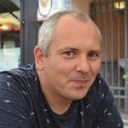Parallel Session 4.1
Tuesday 21 November – 11.30 – 13.00

Free spaces for culture, leisure and experiment for young people
Sander Van Thomme – PhD student at the department of Social Work and Social Pedagogy at Ghent University
In this presentation, we report on the findings of our study in Brussels centered around the concept of free spaces for culture, leisure and experiment for young people. Building on a social-pedagogical perspective, we will argue for the need of a de-objectifying approach to youth-friendly public space. As such, we will emphasize how different meanings of youth friendliness for different social and cultural groups can be distinguished, how youth friendliness is a shared learning process between young people and society and how it is always inherently linked with community development and structural interventions.

A comprehensive interdisciplinary overview of research on the correlation between playgrounds and children’s health
Mette Toftager – Associate professor at the University of Southern Denmark, Researcher in World Playground Research Institute
In this presentation, Mette will share the findings of a scoping review that offers a comprehensive interdisciplinary overview of research on the correlation between playgrounds and children’s health. The review encompasses studies investigating the positive effects of playground use on physical, mental, and social well-being. A thorough examination of multiple databases resulted in the inclusion of 2,388 studies for full-text screening. From this selection process, data from 253 studies, including 28 reviews, were extracted. Most studies focused on school playgrounds and physical activity outcomes, while research on Early Childhood Education and Care centers was also prominent. Limited research was found on public playgrounds

Building a future: for and with which children?
Piet Tutenel – Researcher at the Research[x]Design group, KU Leuven
Stefan Ramaekers – Professor in the Laboratory for Education and Society, KU Leuven
Ann Heylighen – Design researcher

Care environments like a hospital are generally not considered as children’s spaces.For some children, however, such spaces become part of their everyday lives, of their city.
Contemporary discourse on children’s spaces seems to be divided into two separate domains: on the one hand, everyday life and on the other hand, care environments. Our reflection on this distinction is rooted in a design research project that explored how children affected by cancer actively use the hospital environment.

Our presentation emphasizes children’s agency in being everyday designers and raises the question for and with which children we are building a future.
